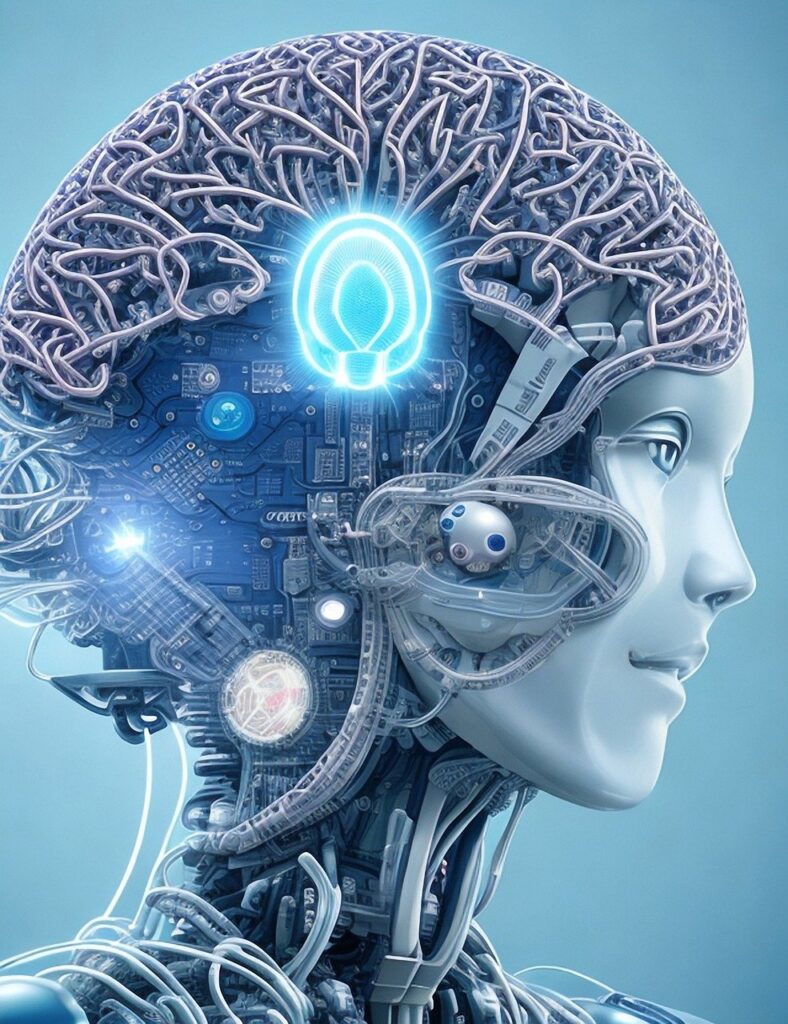
Artificial Intelligence (AI) is no longer a futuristic concept—it’s a powerful and rapidly advancing technology that is reshaping the way we live, work, and interact. From personalized recommendations to autonomous vehicles, AI is deeply embedded in our digital ecosystem. In 2025, the latest advancements in AI technology are not only revolutionizing industries but also setting new standards for innovation, efficiency, and intelligence.
1. Generative AI: Creating Beyond Human Imagination
One of the most groundbreaking developments in AI is Generative AI, which uses machine learning models like GPT-4, DALL·E, and Stable Diffusion to generate text, images, music, and even videos. These models learn patterns from massive datasets and can create content that mimics human creativity.
Applications of Generative AI:
-
AI-generated artwork and video production
-
Automated content creation for blogs, ads, and social media
-
Personalized storytelling and customer engagement
-
Synthetic voice generation for virtual assistants
2. AI in Healthcare: Intelligent Diagnosis and Treatment
AI has made significant strides in medical diagnostics, drug discovery, and patient care. Technologies like AI-powered MRI analysis, predictive healthcare algorithms, and robot-assisted surgeries are enabling earlier diagnosis, precision treatment, and improved patient outcomes.
Example: Google DeepMind’s AI system, AlphaFold, has revolutionized protein folding prediction, aiding in faster drug development.
3. Autonomous Systems: From Cars to Delivery Robots
AI-driven autonomy is evolving beyond just self-driving cars. In 2025, we’re seeing AI-powered drones, last-mile delivery robots, and warehouse automation systems becoming mainstream.
Key Highlights:
-
Tesla’s Full Self-Driving (FSD) software updates
-
Amazon’s Scout delivery bots
-
AI in smart traffic management systems
These systems are equipped with computer vision, LiDAR, and deep learning models for real-time decision-making and navigation.
4. AI-Powered Chatbots and Virtual Assistants
With tools like ChatGPT, Google Gemini, and Claude AI, businesses are now offering 24/7 customer service using natural language processing (NLP). These AI chatbots can understand context, emotions, and even deliver human-like conversations.
Impact: Reduced customer service costs, improved response time, and enhanced user experience.
5. Explainable AI (XAI): Enhancing Transparency and Trust
As AI becomes more integral in decision-making—especially in critical areas like finance, healthcare, and law enforcement—there’s a growing need for transparency. Enter Explainable AI (XAI), which focuses on making AI decisions understandable and traceable for humans.
Benefits of XAI:
-
Builds trust with users and stakeholders
-
Helps identify and eliminate bias
-
Enables regulatory compliance
6. Edge AI: Smarter Devices at the Edge
Edge AI involves processing data locally on devices like smartphones, wearables, and IoT gadgets, rather than relying on cloud computing. With advancements in microprocessors and energy-efficient AI models, Edge AI is making real-time data processing faster and more secure.
Use Cases:
Smart cameras with facial recognition
AI-powered fitness trackers
Industrial IoT for predictive maintenance
7. AI in Cybersecurity: Battling Threats with Intelligence
AI is playing a crucial role in detecting and preventing cyber threats. Modern cybersecurity solutions use AI to analyze behavior, detect anomalies, and prevent attacks in real time.
Innovations Include:
-
AI-based intrusion detection systems
-
Behavioral analysis for fraud prevention
-
Deep learning firewalls to block evolving threats
8. Multimodal AI: Integrating Multiple Data Types
Multimodal AI combines text, image, audio, and video processing into a single framework. Tools like GPT-4 Turbo, Gemini 1.5, and Meta’s LLaMA are pushing the boundaries by enabling seamless interactions across data formats.
Example: Uploading an image and asking the AI to describe, analyze, or generate text-based outputs from it.
9. AI in Finance: Smarter Investing and Fraud Detection
From algorithmic trading to AI-powered robo-advisors, artificial intelligence is transforming the financial sector. Financial institutions now rely on AI for credit scoring, customer segmentation, and transaction analysis to improve decision-making and security.
10. Ethical and Responsible AI
As AI capabilities grow, so does the responsibility to use it ethically. Leading tech companies and governments are working on AI governance frameworks to ensure fairness, accountability, and safety in AI deployment.
Key Focus Areas:
-
Elimination of bias and discrimination
-
Data privacy and consent management
-
AI safety protocols for high-risk applications
Conclusion
The latest AI technologies are not just enhancing existing systems but are redefining the future across every industry. From healthcare breakthroughs to creative innovations, and autonomous intelligence, AI continues to evolve at a lightning pace. Staying informed and adaptive is key as we move into a future powered by smart machines and human collaboration.
Embrace the AI revolution — the future is here, and it’s intelligent.

